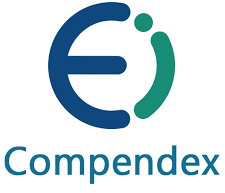 |
Izzat Darwazeh Chair professor of Communications Engineering and Head of Information and Communication and Engineering (ICE) Group University College London |
Outline:
Communication signals have been traditionally designed to be orthogonal, in other words, signals from different sources are not supposed to interfere. Signals can be orthogonal in time, frequency, space or in the way signals are multiplexed. Orthogonal signals are best for transmission, however, they may have some disadvantages and limitations. For nearly 20 years research groups worked at developing non-orthogonal signals for wither bandwidth or energy saving and some of these signals are being considered as viable alternatives to orthogonal ones. In this talk non-orthogonal signal concepts will be explained and systems based on these will be explored with system and experimental results showing the efficacy of using non orthogonal formats in wireless, optical and VLC systems and in IoT applications. Focus will be on the most prominent of these signals, namely the Spectrally Efficient Frequency Division Multiplex (SEFDM) signal. Attendees may find it useful to look at this in advance:
https://ieeexplore.ieee.org/document/8471886
Bio:
Professor Izzat Darwazeh is the founding Director of UCL's Institute of Communications and Connected Systems (ICCS) with over 130 members. He is also the Chair of Communication Systems at UCL and the University of London (since 2006). He founded UCL's Information and Communication Engineering (ICE) research group (with 15 academics and PIs and over 60 researchers) within the department of Electronic and Electrical Engineering. He has been at UCL since 2001. He was a visiting scientist at the European Organization for Nuclear Research (CERN) from 2004 to 2014. Before UCL he was a lecturer and senior lecture at UMIST in Manchester from 1994 to 2001 and a research fellow at the university of Wales-Bangor from 1990 to 1993. Professor Darwazeh obtained the BSc degree (in Electrical Engineering) from the University of Jordan in 1984 and the MSc and PhD degrees from the University of Manchester in 1986 and 1991.
He researched optical communications and high frequency circuits since 1990 and mobile communications since 1994, where he pioneered the development of new techniques for Optical and Wireless/mobile Communication Systems that led to several innovations and “world first” demonstrations. He has co-authored and co-edited four text books and published over 300 scientific papers in the areas of communications and electronics. He has supervised 35 Doctoral and 15 postdoctoral researchers and held the chairmanship of major international conferences in the UK, Europe and Asia.
He pioneered two new modulation schemes termed Fast OFDM and Spectrally Efficient FDM, which challenge the orthodoxy of having orthogonal signals and can almost double information carrying capacity of wireless and optical channels. Research in academia and industry has been developed over the past 20 years following these techniques in Europe, the US and Canada, Japan and China. Professor Darwazeh also works in the areas of ultra high-speed circuit and microwave integrated circuit (MMIC) design and in optical and visible communication circuits and systems. He is a founding member of the ETSI specification group on sub-THz communications.
Professor Darwazeh lectures widely at universities and to various organisations and industries on topics ranging from wireless and optical communications engineering and circuit design to telecommunications and development has acted as consultant/advisor to major organisations including the United Nations, the European Commission, the UK Government, electronics and communications industries, regulators, investment banks and venture Capital firms. He was a consultant on telecommunications legal matters and acted as an expert (18 occasions) in telecommunications patent litigation cases in the UK, USA, Germany and the Netherlands, has written over 20 reports to courts and gave evidence as an expert witness to patent courts on four occasions and in three different jurisdictions UK (Nokia IPCom and Apple-Samsung), Germany and the Netherlands (Philips-Asus). Professor Darwazeh is interviewed regularly by technology and news media and has appeared on radio and TV channels in the UK and overseas.



